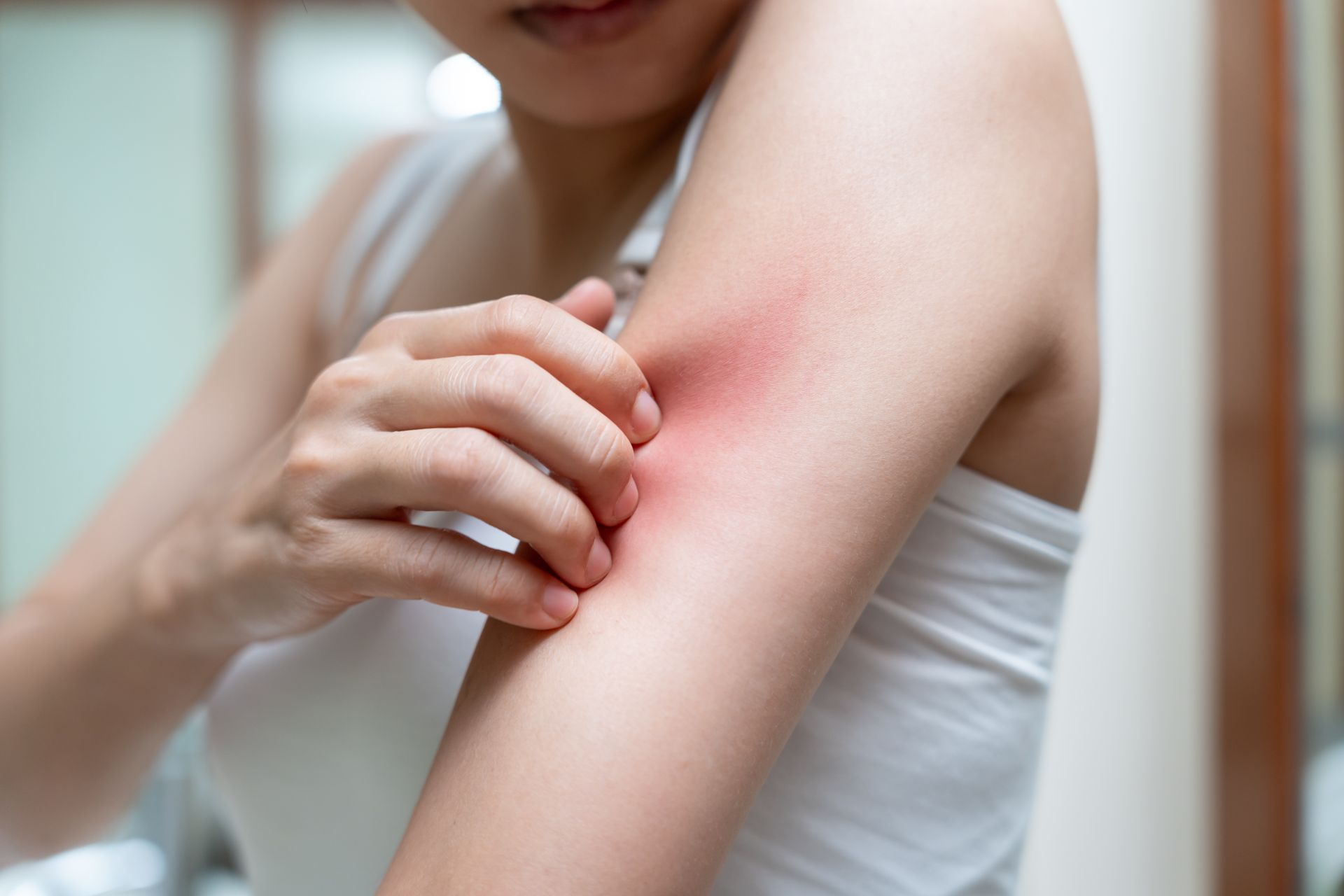How to Soothe Your Skin: Tips for Managing Eczema

Eczema is a persistent skin condition that affects numerous people around the world. In the United States alone, an estimated 31.6 million individuals, around 10.1% of the population, suffer from eczema allergies. As this is a very common condition, we’ve seen firsthand how eczema negatively impacts quality of life. That's why we put this guide together to help you find relief, soothe your skin, and have the proper knowledge and strategies to manage eczema effectively.
Give your skin the relief it deserves. Let's manage eczema the right way!
Understanding Eczema: A Deep Dive
- Types of Eczema
Eczema manifests in many forms, each with its unique characteristics. Atopic dermatitis, contact dermatitis, and dyshidrotic eczema are among the common types. Understanding these distinctions is crucial for specialized and effective management.
- Causes and Triggers
While the primary cause of eczema flare-ups remains elusive, certain factors trigger or exacerbate the condition. Genetics, environmental factors, and immune system dysfunction play pivotal roles. Identifying and managing these triggers are essential steps toward controlling eczema breakout.
Recognizing Eczema Symptoms
- Common Signs and Symptoms
Itchy, red, and inflamed skin are hallmark symptoms of eczema. Understanding these signs early on allows for prompt intervention. Other symptoms may include dryness, cracking, and weeping lesions. Awareness is the key to seeking timely professional help.
- When to Seek Professional Help
Persistent or severe eczema requires the expertise of a medical professional. Knowing when to seek help ensures you receive adequate care and guidance tailored to your condition.
Eczema Rash Relief Skincare Routine
- Gentle Cleansing Tips
Harsh soaps and vigorous scrubbing worsen eczema symptoms. Opting for gentle cleansers and patting the skin dry helps maintain its natural moisture barrier.
- Moisturizing Techniques
Regular moisturizing is a cornerstone of eczema management. Applying a hypoallergenic, fragrance-free moisturizer helps prevent dryness and reduces the likelihood of flare-ups.
Dietary Adjustments for Eczema Relief
- Foods to Avoid
Certain foods trigger or worsen eczema symptoms. Common culprits include dairy, gluten, and processed foods. Identifying and eliminating these triggers from your diet leads to significant improvements to eczema management.
- Foods to Incorporate for Skin Health
Anti-inflammatory foods like fatty fish (salmon), fruits (berries), and vegetables (spinach) may improve skin health. Omega-3 fatty acids, in particular, have shown promise in reducing inflammation associated with eczema.
How to Deal With Eczema and Stress
- The Link Between Stress and Eczema
Stress is a confirmed trigger for eczema flare-ups. Understanding the mind-body connection is crucial for effective management. Stress reduction activities such as meditation, yoga, and deep breathing exercises positively impact eczema symptoms.
- Stress Reduction Techniques
Incorporating stress reduction practices into your daily routine is essential for managing eczema. Prioritizing self-care, observing a healthy work-life balance, and seeking support from friends and family are valuable strategies.
Choosing the Right Clothing
- Fabrics For Sensitive Skin
Certain fabrics (polyester or nylon) irritate sensitive skin , exacerbating eczema symptoms. Opt for breathable, soft fabrics like cotton to minimize irritation and discomfort. Loose-fitting clothing reduces friction on the skin, minimizing the risk of irritation.
Eczema in Different Age Groups
- Addressing Eczema in Children
Children often experience eczema, and managing it requires special considerations. Gentle skincare, identifying and avoiding triggers, and consulting with pediatric dermatologists are vital aspects of pediatric eczema management.
- Tips for Managing Adult-Onset Eczema
Adults dealing with eczema face unique challenges. Understanding the triggers specific to adulthood, such as stress and hormonal changes, allows for personalized strategies for managing the condition.
Skin Eczema Treatment
- Overview of Topical Steroids
Topical steroids effectively manage eczema symptoms. Understanding their proper use, potential side effects and alternatives is crucial for effective treatment. Consult your allergist before using these products.
- Other Prescription Medications
In some instances, your doctor may prescribe oral or injectable medications. Allergy specialists carefully assess the severity of the condition and individual health factors before recommending these interventions. They are the best people to learn about what helps with eczema.
Preventing Eczema Flare-Ups
- Identifying and Avoiding Triggers
Preventing eczema flare-ups involves identifying and avoiding triggers. A detailed diary of activities, foods, and environmental factors helps pinpoint specific triggers for individual cases. Inform your doctor about your observation to increase treatment effectiveness.
- Long-Term Strategies for Maintaining Skin Health
Develop and maintain a consistent skincare routine, incorporate healthy lifestyle habits, and stay vigilant about potential triggers to ensure long-term skin health.
Eczema and Seasons: Tips for Every Weather
- Adjusting Skincare Routines Seasonally
Eczema may react differently to changing seasons. Adjusting skincare routines to accommodate weather variations helps you manage the symptoms effectively throughout the year.
Managing eczema requires a multifaceted approach that addresses triggers and incorporates medical interventions when necessary. By understanding the nuances of eczema and adopting a holistic perspective, you will find relief and enjoy healthier skin for many years.
FAQs
Will eczema go away, or can it only be managed?
Eczema is a chronic condition, but symptoms are controllable with proper management. While no cure exists, ongoing care may lead to long periods of symptom-free skin.
Are natural remedies as effective as prescription medications for eczema?
The effectiveness of natural remedies varies from one case to another. Some find relief through natural options, while others may require prescription medications for more severe symptoms.
Can stress worsen eczema symptoms?
Yes, stress is a verified trigger for eczema flare-ups. Managing stress through various techniques positively impacts eczema symptoms.
Are there specific foods that everyone with eczema should avoid?
Specific common triggers like dairy and gluten may exacerbate eczema symptoms, but reactions vary. Keeping a food diary helps identify particular triggers.
Is it safe to use topical steroids for a prolonged period?
Prolonged use of topical steroids should be under the guidance of a healthcare professional. Regular monitoring and adjustments to the treatment options ensure safety and efficacy.
Take the First Step Toward Eczema Relief With Us!
Living with eczema is a challenging task. That's why we're here to lessen its burdens for you!
Our board-certified allergy experts are here to provide tailored treatment plans to ensure maximum protection against eczema and similar conditions. Regain control of your life and enjoy an eczema-free 2024!
Book an appointment today!




